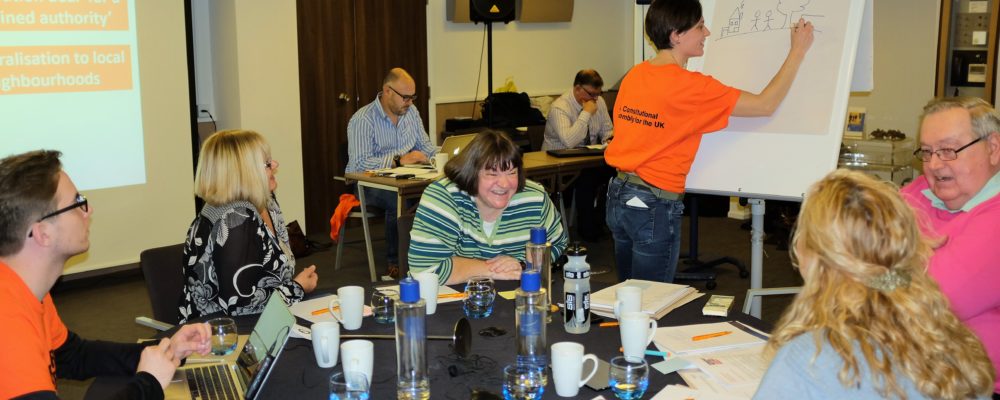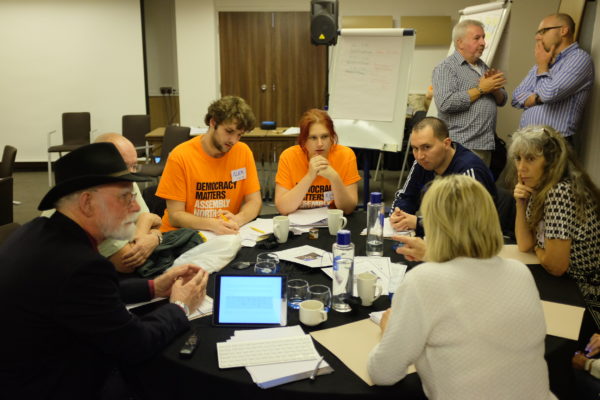Rather than elections, the members of a citizens’ assembly are typically selected at random from the general public – like a jury. It is still up to elected politicians whether or not to follow the assembly’s recommendations.
The aim is to secure a group of people who are broadly representative of the electorate across characteristics such as their gender, ethnicity, social class and the area where they live.
One of the problems with popular self-government, is that people are far too busy leading their lives to also govern themselves. The only way the ancient Athenians managed it was by excluding all the women and the massive slave population from the process. While the men informed themselves on the issues of the day, the women and slaves did all the work.
We could have rule by direct democracy with regular referendums, but only a small percentage of the population can or want to spend all their spare time learning about fishing quotas one month, then social security rules the next.
Representative democracy is a way around this problem. We vote for a small group of people to work full time on getting themselves informed on important issues, and then let them get on with it – throwing them out if they do anything too wrong. But, this can lead to the formation of a political class with interests of their own.
Citizens’ Assemblies are a way around this problem. By randomly selecting a representative group and giving them the tools and time, you can create a proxy for what it would be like if everyone had the tools and time to discuss and debate the important issues.
Around the world, people are innovating with new forms of democracy. Drawing from classical ideas of random selection and modern institutions such as citizens’ juries, more deliberative and participatory forms of democracy are taking shape. With our long democratic heritage, it is an area where Britain can take the lead.


